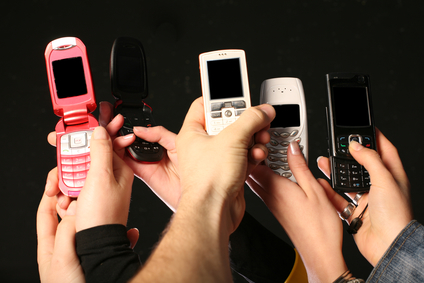
Does anyone not have fun picking out new gadgets? It’s an exhilarating feeling. We get to shop among dozens of shiny new products, finally deciding on just one that meets our needs. In the U.S. smartphone users get this feeling every two years.
Since we sign two-year contracts in exchange for a discounted handset, we can choose a new one regularly. While that is exciting in many ways, it’s also a difficult decision in many others. There are just so many factors to consider when choosing a new smartphone.
For many people, both in the U.S. and worldwide, there is one factor above all that should frame our new smartphone choices. It’s not about processor, or display. Really, it’s not even about the smartphone itself.
No, the most important factor in choosing a new smartphone is the network it runs on.
Network Coverage
As so many commercials tell us, a smartphone is only as good as its network. To a large extent that’s true. You can have a state of the art phone, but if you don’t get full reception in your area, or the network is always bogged down with traffic, you’re not going to get the most out of it.
Not even close. What you’ll have is a glorified device, effective in theory but not in practice. That hardly seems useful.
The newest, shiniest smartphone might have just become available. You might be clamoring to get it. But if you check a cellular coverage map and see that the phone’s carrier doesn’t cover your area, it’s tough to justify.
After all, you’d get better performance out of a lesser phone on a stronger network. Really, it’s all about the network signal. It drives all we do. And it should absolutely be the first thing you consider when buying a smartphone.
Handset Selection
While it’s not true everywhere in the world, in the U.S. handsets are tied to a particular network. If you buy a smartphone on Verizon, it’s pretty much staying on the Verizon network. Each carrier offers a different selection of smartphones, so the carrier again plays a large role in handset selection.
While carriers do tend to carry similar handsets, and even the same handsets under a different name, there are differences that can greatly affect a smartphone-buying decision.
One of the biggest considerations is the presence of the iPhone, which continues to be the most popular smartphone in the U.S.
Thankfully for consumers, three of the four major carriers do carry the iPhone. Plenty of people prefer Android, though, and for them there are choices on any carrier.
A look through the T-Mobile smartphone inventory reveals plenty of excellent iPhone alternatives. But that’s a different Android selection than AT&T, so users will have to pick the carrier that offers the phone they want.
Monthly Fees
One thing that greatly separates carriers is the monthly rate selections they offer to customers. These rates can vary widely among carriers and can often play a definitive factor in a smartphone purchase decision.
After all it’s tough for some to justify spending $120 per month on smartphone service when they can get similar service for about half the price on another network.
With AT&T and Verizon, the U.S.’s two largest wireless carriers, consumers are in part paying for the big brand name. In many areas (but not most) their services pale in comparison to competitors Sprint and T-Mobile, but still cost considerably more.
Smartphone users also have the alternative of prepaid carriers, many of which now offer Android smartphones at a much cheaper monthly rate.
When we buy a TV, it’s all about the TV itself. When we buy an MP3 player, it’s about the quality of that particular MP3 player. But when we buy a new smartphone, there are factors that go beyond the phone itself.
The network on which the smartphone runs plays an even larger factor than the phone itself. Poor coverage, thin handset selection, and high monthly fees can greatly alter a smartphone-buying decision.
Joe Pawlikowski is the editor of BBGeeks, a site dedicated to helping BlackBerry users get the most out of their devices.